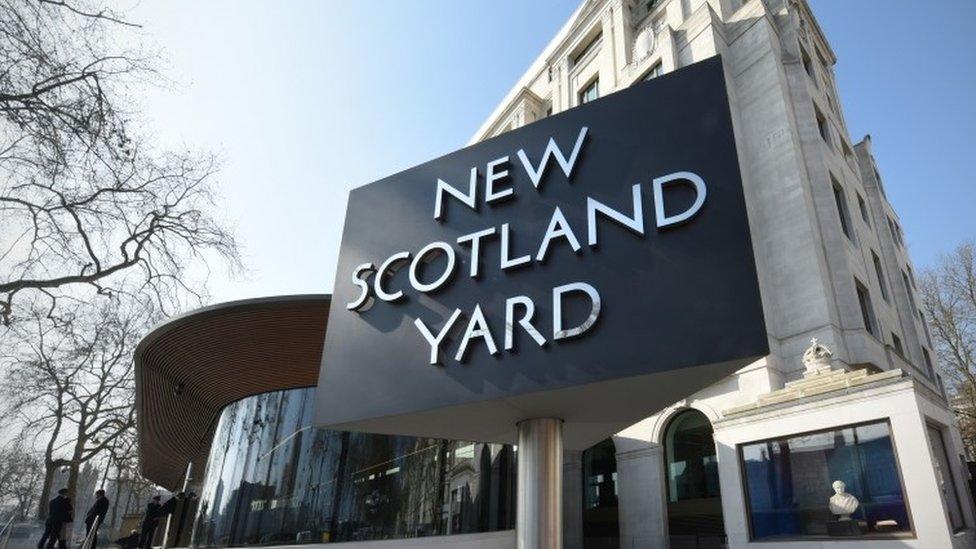Met commander who wrote force's drug strategy took magic mushrooms - hearing
- Published

Cdr Julian Bennett is accused of using cannabis, LSD and magic mushrooms while on holiday
A Met Police commander who wrote the force's current drug strategy is facing a misconduct hearing accused of taking magic mushrooms, LSD and cannabis.
Cdr Julian Bennett is accused of three allegations of discreditable conduct.
He is alleged to have taken the drugs while on holiday in France between February 2019 and July 2020.
His lawyer told the hearing it was biased and urged the panel to recuse themselves, citing concerns about the disclosure of evidence.
The Met's Deputy Assistant Commissioner Stuart Cundy also attended the hearing, and remained silent except to confirm he was present as a "police friend" - a term used to describe a supportive police representative for someone facing misconduct proceedings.
The first allegation against Cdr Bennett says he used controlled drugs while off duty between February 2019 and July 2020.
The second alleges he refused to comply with a lawful order to provide a sample for a drugs test on 21 July 2020.
The third, also relating to 21 July 2020, accuses Cdr Bennett of lying about why he could not provide a sample.
'Drawing teeth'
His legal team previously made an application for the case to be dismissed, but the panel rejected it in September.
In the latest hearing, panel chairman Akbar Khan opened the hearing by saying he would consider an application requesting the recusal of the entire panel, on the basis of September's decision and comments made within it.
Cdr Bennett's lawyer, John Beggs KC, claimed there had been a "disclosure debacle" during their preparation for the case, which he added was like "drawing teeth" and had caused lengthy delays to the hearing, which was first listed almost a year ago.
'Appearance of bias'
Mr Beggs said the current panel members failed to make "even the mildest criticism" of the police stance on disclosure.
He added: "That alone undermines the appearance of impartiality and conveys the appearance of bias."
Mr Beggs said the detective constable in charge of disclosure effectively delegated the duty to the main witness and therefore made a "serious omission - a complete failure to understand the duty of disclosure".
He also accused the Met of being "selective" with messages, disclosing WhatsApp messages from 2019 and 2021 but "none of the meat of the sandwich of 2020" until late last year.
"We respectfully suggest that actually it was studied refusal to give disclosure," he said.
In response, the chairman asked why Cdr Bennett's defence team took three months to bring its recusal application.
Mr Beggs accepted the application should have been quicker, but said the Met was to blame for other delays in the case.
The hearing was adjourned until a date yet to be confirmed so the panel could decide its ruling on the recusal application.

Follow BBC London on Facebook, external, Twitter , externaland Instagram, external. Send your story ideas to hellobbclondon@bbc.co.uk, external